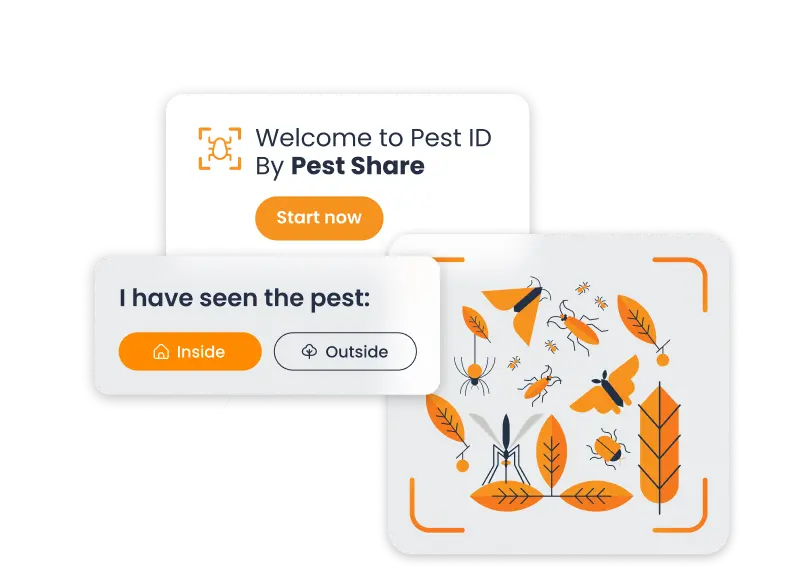In property management, every call about a pest problem is one call too many. Whether it’s a panicked message about cockroaches in the kitchen or a frustrated email about mice in the walls, pest issues lead to complaints—complaints that take up time, cause stress, and, if not handled quickly, can turn into bigger headaches like bad reviews or lease breaks.
That’s why a pest control subscription is more than just a service—it’s a strategy. Instead of scrambling every time a resident finds a pest, a subscription ensures that pest issues are handled before they even become complaints.

Fast Fixes. Happy Residents.
The Downside of Reactive Pest Control
Traditional pest control in rental properties is usually reactive. A resident reports a pest problem, maintenance submits a request, a pest control company is contacted, and then a technician is scheduled—often days later. Meanwhile, the resident is stuck dealing with the problem, growing more frustrated as they wait for a solution.
Even when pest control is scheduled, one visit often isn’t enough. Roaches, bedbugs, and rodents are persistent, and infestations don’t go away overnight. This means repeated treatments, ongoing resident complaints, and a drawn-out process that no one enjoys.
Another issue with reactive pest control is inconsistency. Some residents might report problems immediately, while others might not mention an issue until it becomes unbearable. By the time management is aware, the problem has often spread to other units, making treatment even more complicated.
In short, reactive pest control is a never-ending cycle of complaints, service requests, and follow-ups. It’s inefficient, frustrating, and, ultimately, avoidable.
Why Preventative Pest Control Is the Smarter Choice
A pest control subscription takes a completely different approach. Instead of waiting for residents to complain, properties receive routine, scheduled treatments that stop pests before they become a problem. This means fewer complaints, less stress, and a healthier living environment for everyone.
Regular treatments create a protective barrier against pests, making it harder for infestations to take hold in the first place. Pests like roaches, ants, and mice thrive in apartment settings because they have easy access to food, water, and shelter. But with a consistent pest control routine, their ability to settle in is significantly reduced.
Another key benefit is predictability. With a subscription, pest control becomes part of a property’s routine maintenance—just like landscaping or HVAC servicing. This removes the uncertainty of waiting for complaints to determine when service is needed. Instead, pest management is handled on a set schedule, making it easier to plan and budget for.
Fewer Complaints, Less Work for Property Managers
One of the biggest challenges of managing resident complaints is the time they take to resolve. Every pest complaint means another phone call, another email, another service request, and another follow-up. For property managers juggling dozens of responsibilities, these complaints can quickly become overwhelming.
With a pest control subscription, many of these complaints never happen in the first place. When residents see that their property is proactively handling pest control, they feel more confident that their home is being taken care of. And when pests are kept under control, there’s simply less to complain about.
Instead of scrambling to schedule emergency treatments, property managers can focus on other priorities. Maintenance teams aren’t constantly responding to pest-related issues, and office staff spend less time fielding complaints. It’s a more efficient way to run a property, plain and simple.
The Long-Term Benefits of Consistent Pest Control
Beyond reducing immediate complaints, a pest control subscription provides long-term benefits that go beyond just keeping bugs away.
Stronger Resident Retention
Pests are one of the top reasons residents choose not to renew their leases. No one wants to live in a place where they constantly have to worry about roaches or mice. If a resident has to call about pests multiple times, they’re more likely to start looking for a new home.
A subscription-based pest control service ensures that residents see their property as well-maintained and proactive. This builds trust and makes them more likely to stay when it’s time to renew.
Better Online Reviews and Reputation
In today’s digital world, online reviews play a huge role in a property’s reputation. A single complaint about pests can turn into a negative review that deters potential renters.
When pest control is handled consistently, residents have fewer reasons to leave negative feedback. Instead, they’re more likely to leave positive reviews about a well-managed property that takes their concerns seriously.
Cost Savings Over Time
Some property managers hesitate to sign up for a pest control subscription because they see it as an extra expense. But when you break it down, a subscription actually saves money in the long run.
With a pay-per-visit pest control model, costs can add up quickly—especially if multiple treatments are needed to resolve an issue. Emergency treatments tend to be more expensive, and they often don’t cover preventative measures.
A subscription spreads out the cost and ensures regular treatment, which helps prevent larger infestations that require costly interventions. It also reduces turnover costs by keeping residents happy and less likely to leave due to pest issues.
Making Pest Control Hassle-Free
At the end of the day, pest control shouldn’t be a recurring headache for property managers or residents. A subscription service takes the stress out of pest management by providing reliable, ongoing protection that minimizes complaints and keeps properties pest-free.
Instead of reacting to problems after they occur, a subscription allows properties to take control of pest issues before they escalate. It’s a smarter, more efficient way to handle pest control—one that benefits both residents and property managers.
With a solution like Pest Share, properties can shift from dealing with constant pest complaints to a system that prevents them in the first place. Fewer complaints mean less work for property managers, happier residents, and a stronger reputation for the property. In the end, one less call about pests is one less problem to handle—making everyone’s job a little easier.






